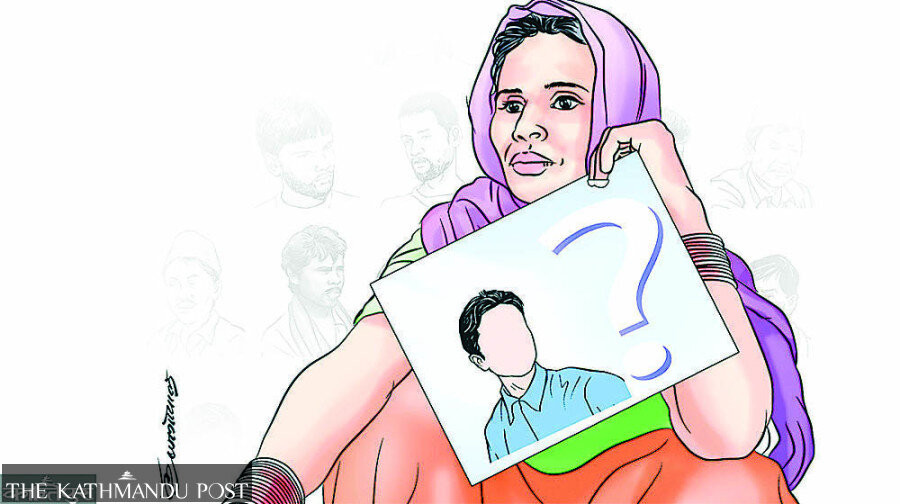National
Deal on reduced sentencing concerns rights defenders
A three-member panel representing the three major parties claims to have reached an agreement on reducing the sentence for serious conflict-era rights violators by three fourths.
Post Report
With the major parties inching closer to finalising the bill to amend the Enforced Disappearances Enquiry, Truth and Reconciliation Commission Act, a group of human rights activists have taken a serious exception to the agreement between the parties to guarantee reduction of 75 percent punishment to the guilty of serious violations of human rights.
A three-member panel with the representatives from the Nepali Congress, CPN-UML and CPN (Maoist Centre) has claimed to have reached an agreement on reducing the sentence by three fourths of the term. The Accountability Watch Committee, a network of human rights activists, however, has objected to the concession claiming that it undermines criminal accountability for serious crimes.
Stating that the right to effective legal remedy is the soul of transitional justice, the committee has said decisions made at any level that directly or indirectly undermine this prerogative of the victims of human rights violations cannot sustain.
A meeting of the top leadership from the three parties had last month formed a committee comprising Ramesh Lekhak of the Congress, Mahesh Bartaula of the UML and Janardan Sharma of the Maoist Centre to negotiate on the amendment bill that is under consideration of a House committee.
Of the four contentious issues the Law, Justice and Human Rights Committee was struggling to settle, the three-member committee has reached an agreement in two of them. They have agreed to list arbitrary killings as serious violations of human rights and reduce the sentencing by 75 percent for those who cooperate in the investigation process.
The amendment bill was registered in the House of Representatives in March last year and sent to the parliamentary committee for finalisation.
After over a year of discussions, the parliamentary committee narrowed down the differences to four points. There had been a broader understanding on two points—to list arbitrary killings as serious violation of human rights (thus non-amnestiable), and to open the doors for the victims, who refuse to reconcile, for prosecution.
The House panel had been struggling to decide whether to categorise arbitrary killings or all killings except those that occurred in clashes as serious violations of human rights. It has also been unable to settle what happens in case the victims of human rights violations refuse to reconcile. Addressing the concerns of those affected by the conflict even if they were not directly involved and providing justice to Maoist child soldiers are among the most contentious issues. The Maoist Centre is unwilling to include the issue of child soldiers in the Act.
Now the three-member team is negotiating on two more issues: what if the victims don't agree for reconciliation and addressing the issues of former Maoist combatants. It is preparing to submit the report to the top leadership on Friday. The committee will endorse the bill based on their agreement and forward it to the House of Representatives for endorsement.
However, the group of human rights activists has said it is inappropriate to bind the judiciary by law to grant excessive immunity from criminal punishment to those guilty of serious crimes by specifying a reduction in sentences undermining the judicial independence and the victims' right to effective legal remedy. It has demanded scrapping of the provision though it is not fully against reduced sentencing.
"A balanced approach can be adopted where the court retains the authority to determine the appropriate degree of punishment based on an independent judicial evaluation of the aggravating and mitigating factors of an offence. It is inappropriate to bind the judiciary by law to grant excessive immunity from criminal punishment to those guilty of serious crimes by specifying a percentage reduction in sentences, undermining the judicial independence and the victims' right to effective legal remedy," said the committee in a statement.
The three-party committee had agreed on the 75 percent reduction in the penalty weeks after the National Human Rights Commission came with a similar position.
In its report “The National Human Rights Commission and Transitional Justice" published on July 8, the commission had said the jail term of convicts who meet the criteria [perpetrators cooperating in the investigation process], can be reduced to a minimum of 25 percent as per existing laws. “The criteria for reduced sentencing can be defined in the law," it said.
However, the watch committee says such provisions would open the door to impunity and exemption for perpetrators of serious crimes, depriving victims of their right to justice.
The state cannot create exceptions to the guarantee of equal protection by law and the principle of non-discrimination in Article 18 of the constitution by treating conflict victims unequally, said the statement.




 18.12°C Kathmandu
18.12°C Kathmandu













